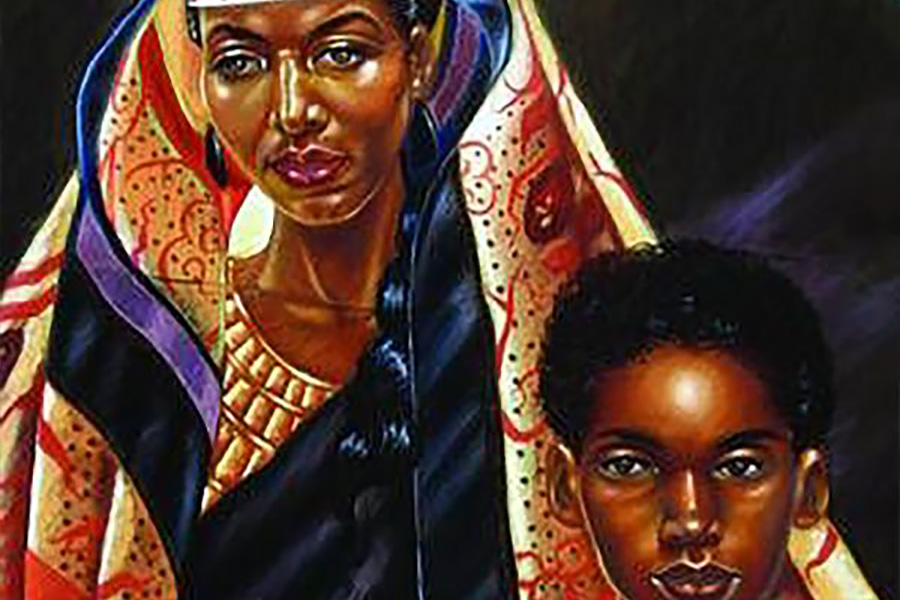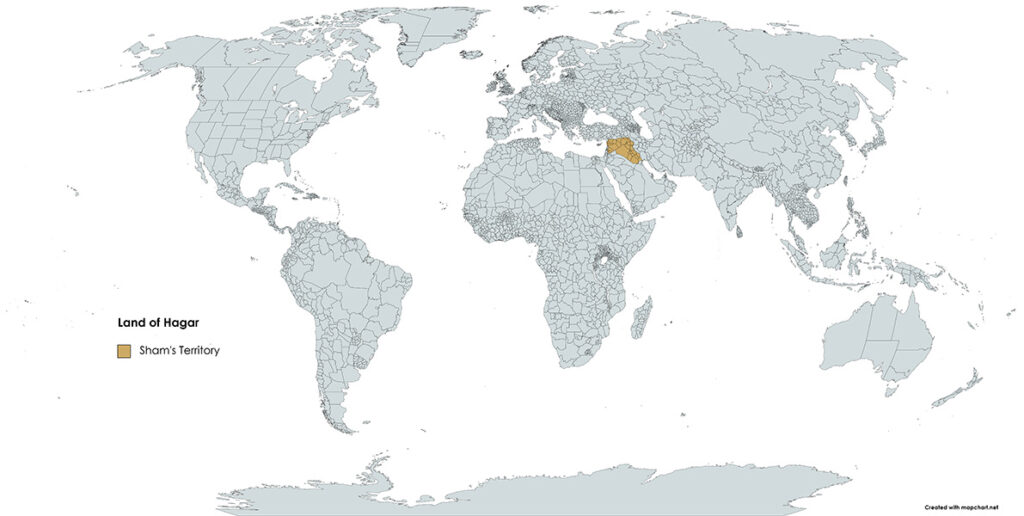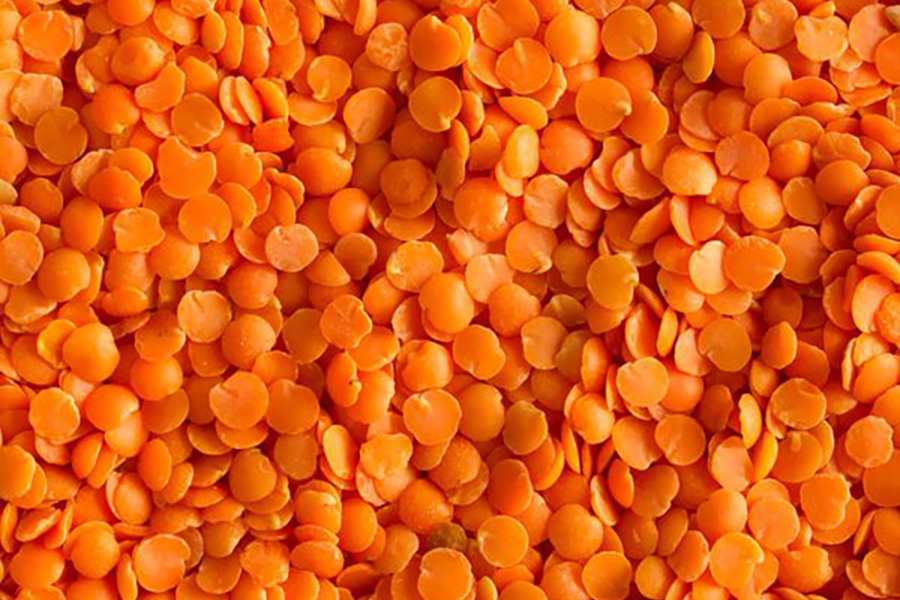The word hagar (𐤄𐤂𐤓) or “Hagar the Egyptian” translated from 𐤄𐤂𐤓 𐤄𐤌𐤑𐤓𐤉 (Hagar Ha-Matsaray) is the slave (not the same as chattel slavery) or handmaiden of 𐤔𐤓𐤉 (Sharay). She was given to her mistress’ husband to give birth to a child for them. From her union with 𐤀𐤁𐤓𐤌 (Abaram), his 𐤁𐤊𐤅𐤓 (bakauar), 𐤉𐤔𐤌𐤏𐤀𐤋 (Yashamaāal), was born.
The Paleo-Hebrew language or the original language of the Ābarayam is one spoken with an emphasis on the rauakh (breath, wind, spirit). With the language of the Ābarayam, each letter has a meaning and a number associated with it that adds meaning to each word they’re used with. Below you will be able to learn more about the letter in Ancient Hebrew, Yiddish Hebrew, Greek, and much more.
Letter Meanings
| Letter | Meaning |
|---|---|
| 𐤄 (h) – ha | look, behold, the, reveal, breath, life, man Prefix: the, this |
| 𐤂 (g) – ga | Foot, pride, camel |
| 𐤓 (r) – ra | head and person, man, beginning, top, rule, inheritance, possession |
| Ābarayat Number | 208 = 5 (h) + 3 (g) + 200 (r) |
| Hebrew Gematria | |
| English Gematria | |
| Simple Gematria |
Based on the meaning of the letters the word could be defined as:
- “behold staff of inheritance”
- “man carry rule”
- “reveal a staff of inheritance”
- Combines H and Gar, meaning “The sojourner”
Definitions for 𐤄𐤂𐤓 / hagar
| Language | Word | Transliteration | Pronunciation | Definition |
|---|---|---|---|---|
| Ābarayat | 𐤄𐤂𐤓 | hagar | ha-gawr | The sorjourner |
| English | Hagar | Hagar | hey-gahr | the mother of Ishmael. Genesis 16. |
| Hebrew | הָגָר | Hagar | haw-gawr’ | Sarah’s Egyptian maid, the mother of Ishmael |
| Arabic | هاجر | Hajar | haw-jar | emigrated, migrate, immigrate |
| Greek | Ἅγαρ | Hagar | ag’-ar | Hagar, the servant of Sarah, the concubine of Abraham. |
Birth of 𐤉𐤔𐤌𐤏𐤀𐤋 (Yashamaāal)
When 𐤀𐤁𐤓𐤌 (Abaram) was 86 years old, his 𐤀𐤔𐤄 (ashah) 𐤔𐤓𐤉 (Sharay) told him to have sex with her handmaiden to bring forth a child. 𐤄𐤂𐤓 (Hagar) is a 𐤌𐤑𐤓𐤉 (Matsaray) from the land of 𐤌𐤑𐤓𐤉𐤌 (Matsarayam) from the lineage of 𐤇𐤌 (Kham) who bore him his 𐤁𐤊𐤅𐤓 (bakauar) 𐤁𐤍 (ban), 𐤉𐤔𐤌𐤏𐤀𐤋 (Yashamaāal). However, when 𐤉𐤔𐤌𐤏𐤀𐤋 (Yashamaāal) was between 17 and 19 years old, 𐤔𐤓𐤉 (Sharay) who was renamed 𐤔𐤓𐤄 (Sharah) told 𐤀𐤁𐤓𐤌 (Abaram) who was renamed 𐤀𐤁𐤓𐤄𐤌 (Abaraham) to send away 𐤄𐤂𐤓 (Hagar) and 𐤉𐤔𐤌𐤏𐤀𐤋 (Yashamaāal) and he complied but still maintained interactions with his 𐤁𐤍 (ban). 𐤉𐤔𐤌𐤏𐤀𐤋 (Yashamaāal) is the progenitor of the 𐤉𐤔𐤌𐤏𐤀𐤋𐤉𐤌 (Yashamaāalayam) or brown-skinned Arabs and his descendants would create the Islamic faith. His name means “The Most High hears” in the 𐤏𐤁𐤓𐤉𐤕 (Ābarayat) language.
Scriptural History
When 𐤀𐤁𐤓𐤌 (Abaram)’s 𐤀𐤔𐤄 (ashah) 𐤔𐤓𐤉 (Sharay) realizes that her own scheme successfully results in 𐤄𐤂𐤓 (Hagar)‘s pregnancy, she pesters her until she leaves. She meets the 𐤌𐤋𐤀𐤊 (malaak) of 𐤉𐤄𐤅𐤄 (Yahauah) / 𐤉𐤄𐤉𐤄 (Yahayah) at the well of 𐤁𐤀𐤓 𐤋𐤇𐤉 𐤓𐤀𐤉 (Baar La-Khay Raay), and he sends her back. When 𐤔𐤓𐤄 (Sharah) gives birth to 𐤉𐤑𐤇𐤒 (Yatsakhaq) she objects to Hagar and her son 𐤉𐤔𐤌𐤏𐤀𐤋 (Yashamaāal), and a heavy-hearted 𐤀𐤁𐤓𐤄𐤌 (Abaraham) sends 𐤄𐤂𐤓 (Hagar) away for good.
She travels south, possibly to go home to 𐤌𐤑𐤓𐤉𐤌 (Matsarayam), but loses her way. The verb used to describe her “wandering” about in the wilderness of 𐤁𐤀𐤓 𐤔𐤁𐤏 (Baar Shabaā) is 𐤕𐤏𐤄 (taāh), which means to err or go astray. A derivation of this verb is 𐤕𐤅𐤏𐤄 (tauaāh) meaning error.
She wanders the desert until her supplies run out. Desponded and exhausted, she abandons her 𐤁𐤍 (ban) so that she won’t have to watch him die, and sits down a bowshot away from him to cry. Curiously, not her cries but the cries of the boy reach 𐤔𐤌𐤉𐤌 (shamayam). For the second time, the 𐤌𐤋𐤀𐤊 (malaak) of 𐤉𐤄𐤅𐤄 (Yahauah) / 𐤉𐤄𐤉𐤄 (Yahayah) speaks to her and promises her that 𐤉𐤔𐤌𐤏𐤀𐤋 (Yashamaāal) will be a great nation. The 𐤌𐤋𐤀𐤊 (malaak) opens her eyes and she sees the well of 𐤁𐤀𐤓 𐤔𐤁𐤏 (Baar Shabaā).
She and the boy resume their journey. 𐤉𐤔𐤌𐤏𐤀𐤋 (Yashamaāal) becomes an archer and lives in the wilderness of 𐤐𐤀𐤓𐤍 (Phaaran) with his 𐤌𐤑𐤓𐤉𐤌 (Matsaray) wife whom his 𐤀𐤌 (am) has obtained for him. 𐤄𐤂𐤓 (Hagar) becomes the grandmother of twelve princes, who form the great nation that 𐤌𐤋𐤀𐤊 (malaak) of 𐤉𐤄𐤅𐤄 (Yahauah) / 𐤉𐤄𐤉𐤄 (Yahayah) promised.
Images for 𐤄𐤂𐤓 / hagar

Maps for 𐤄𐤂𐤓 / hagar

Definitions for 𐤄𐤂𐤓𐤉 / hagaray
When adding the 𐤉 (yad) to the end of a word, it creates a possessive of the original word. It can either signify “my…” or identify a member of a nation. For example, 𐤏𐤁𐤓 (Ābar) is the progenitor, but 𐤏𐤁𐤓𐤉 (Ābaray) is the singular descendant of him also known as a Hebrew.
| Language | Word | Transliteration | Pronunciation | Definition |
|---|---|---|---|---|
| Ābarayat | 𐤄𐤂𐤓𐤉 | hagaray | ha-gawrey | a tribe East of the Yaradan, also a member of the tribe, also a Yasharaalay. |
| English | Hagarite | Hagarite | hey-gahryt | a descendant of Hagar. Another name for the Ishmaelites. |
| Hebrew | הַגְרִי | Hagri | hag-ree’ | a tribe East of Jordan, also a member of the tribe, also an Israelite |
| Arabic | هجري | hajri | haw-jaw-ree | migratory |
| Greek | Γερραίοι | gerraioi | jer-aye | Gerrhaeans |
The Descendants
𐤄𐤂𐤓𐤉 (Hagray) or Hagarite are the descendants of 𐤄𐤂𐤓 (Hagar). This includes 𐤉𐤔𐤌𐤏𐤀𐤋 (Yashamaāal) and any other children she may have had after him. They lived a nomadic, animal-herding lifestyle in the sparsely populated land east of the 𐤉𐤔𐤓𐤀𐤋𐤉𐤌 (Yasharaalayam). According to the scriptures, the 𐤓𐤅𐤁𐤍𐤉𐤌 (Rauabanayam), 𐤂𐤃𐤉𐤌 (Gadayam), and half of the tribe of 𐤌𐤍𐤔𐤄 (Manashah) brought 44,760 to battle with the 𐤄𐤂𐤓𐤉𐤌 (Hagarayam) and defeated them. Through the battle, the 𐤓𐤅𐤁𐤍𐤉𐤌 (Rauabanayam) captured the land as well as 50,000 camels, 250,000 sheep, 2,000 donkeys. Finally, they captured 100,000 men, women, and children and held them as captives.
King 𐤃𐤅𐤃 (Dauad) / 𐤃𐤉𐤃 (Dayad) made “Jazziz the Hagrite” steward of his flocks, but they are not mentioned in the ancestral books as a distinct people after the reign of King 𐤃𐤅𐤃 (Dauad) / 𐤃𐤉𐤃 (Dayad). In Psalms 83:6, they are included in a list of ten tribes that form a coalition to attack 𐤉𐤔𐤓𐤀𐤋 (Yasharaal) for the purpose of wiping it off the map, which they succeeded in doing.
The Gerrhaeans
The historian, W.W. Muller proposed that a city of the people of 𐤄𐤂𐤓 (Hagar) would have become ‘han-Hagar’ when written in Aramaic and possibly ‘Hagara.’ When Hellenized it would have become ‘Gerrha.’ H. von Wissmann proposed that the term ‘Hagar’ could be used to describe a walled city with towers and bastions. Based on these ideas, archeologists have speculated that the east Arabian kingdom of the Gerrhaeans can be attributed to the descendants of Hagar. If this is true, then history tells us much more about the Hagarites, who would have been known as the Gerrhaeans in the Greek (Yauan) world.
Prior to Gerrha, the area belonged to the Dilmun civilization, which was conquered by the Assyrian Empire in 709 BC (4076 A.M.). Gerrha was the center of an Arab kingdom from approximately 650 BCE to circa 300 CE (4017 to circa 4367 A.M.). The kingdom was attacked by Antiochus III the Great in 205-204 BCE (4091 ― 4092 A.M.) and succeeded to conquer modern Bahrain, although Gerrha seems to have survived in modern-day Oman. It is currently unknown exactly when Gerrha fell, but the area was under the Sasanian Empire’s control after 300 CE (4367 A.M.).
Definitions for 𐤄𐤂𐤓𐤉𐤌 / hagarayam
When adding the 𐤌 (mayam) after the 𐤉 (yad) to the end of a word, it creates a plural of the original word. It can identify multiple members of a nation. For example, 𐤏𐤁𐤓 (Ābar) is the progenitor, but 𐤏𐤁𐤓𐤉𐤌 (Ābarayam) are the plural descendants of him also known as Hebrews.
| Language | Word | Transliteration | Pronunciation | Definition |
|---|---|---|---|---|
| Ābarayat | 𐤄𐤂𐤓𐤉𐤌 | hagarayam | ha-gawra-yawm | |
| English | ||||
| Hebrew | ||||
| Arabic | ||||
| Greek |
Images for 𐤄𐤂𐤓𐤉𐤌 / hagarayam


Definitions for 𐤄𐤂𐤓𐤉𐤕 / hagarayat
When adding the 𐤕 (tau) after the 𐤉 (yad) to the end of a word, it creates a plural of the original word. It identifies the language or a sign of a nation’s existence. For example, 𐤏𐤁𐤓 (Ābar) is the progenitor, but 𐤏𐤁𐤓𐤉𐤕 (Ābarayat) is the language of him also known as Paleo-Hebrew language.
| Language | Word | Transliteration | Pronunciation | Definition |
|---|---|---|---|---|
| Ābarayat | 𐤄𐤂𐤓𐤉𐤕 | hagarayat | ha-gawra-yawt | |
| English | ||||
| Hebrew | ||||
| Arabic | ||||
| Greek |
Images for 𐤄𐤂𐤓𐤉𐤕 / hagarayat
| Character | Name | Transliteration | Pronunciation |
|---|---|---|---|
Classification
You can continue your studies of the words by viewing Strong’s entries for:



